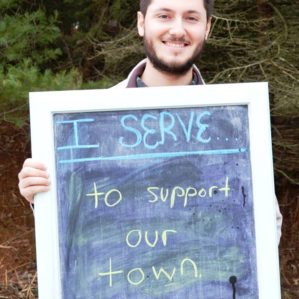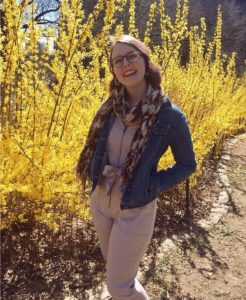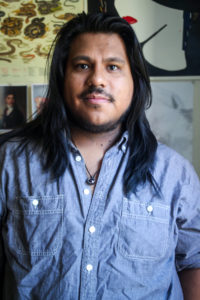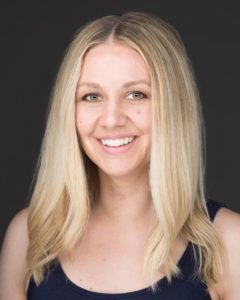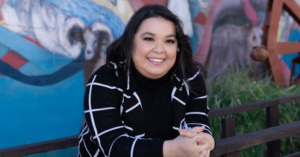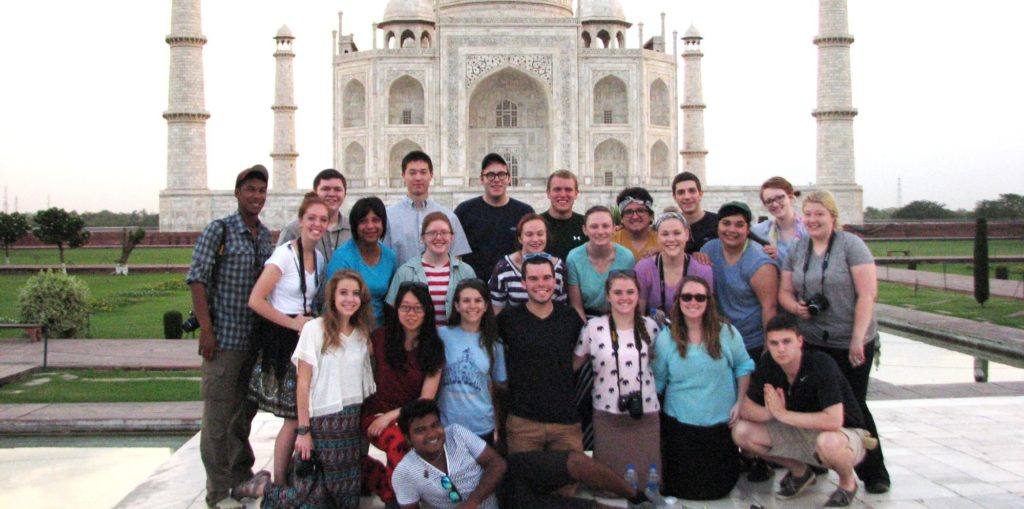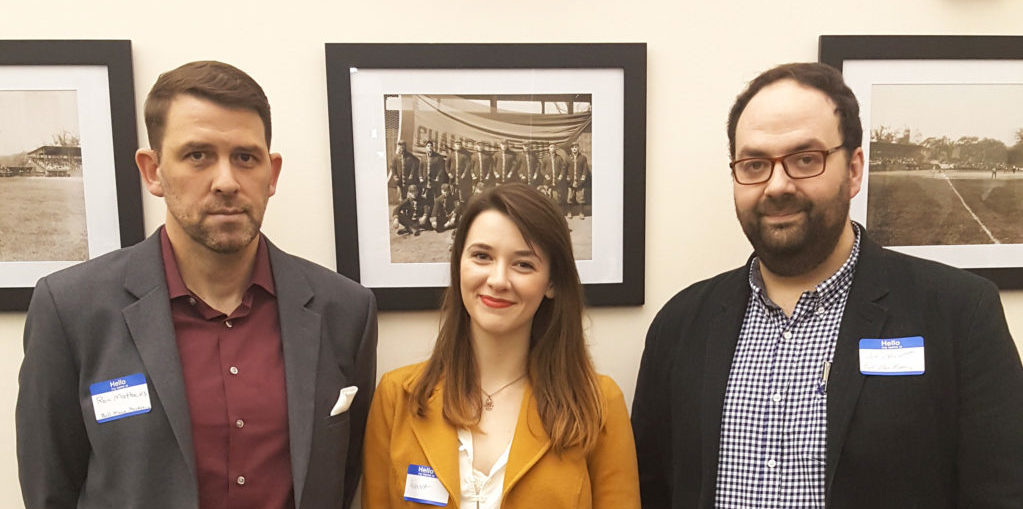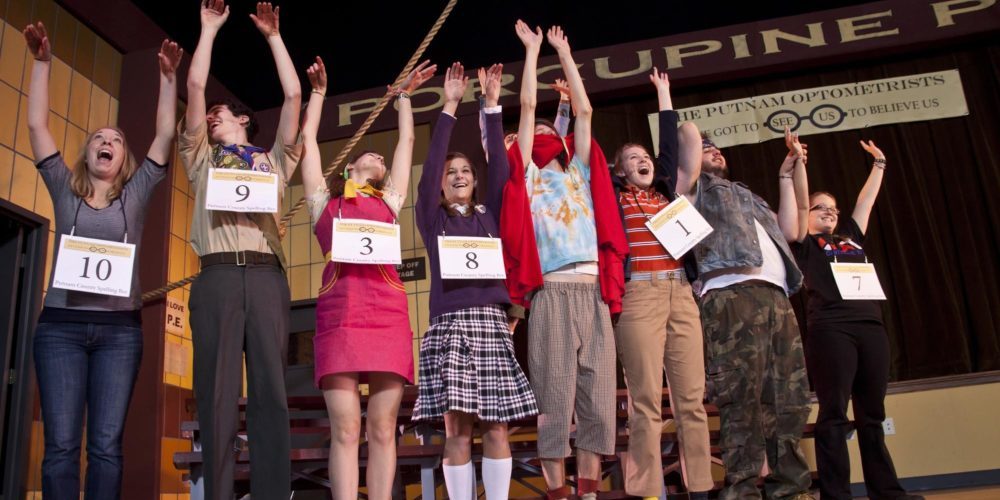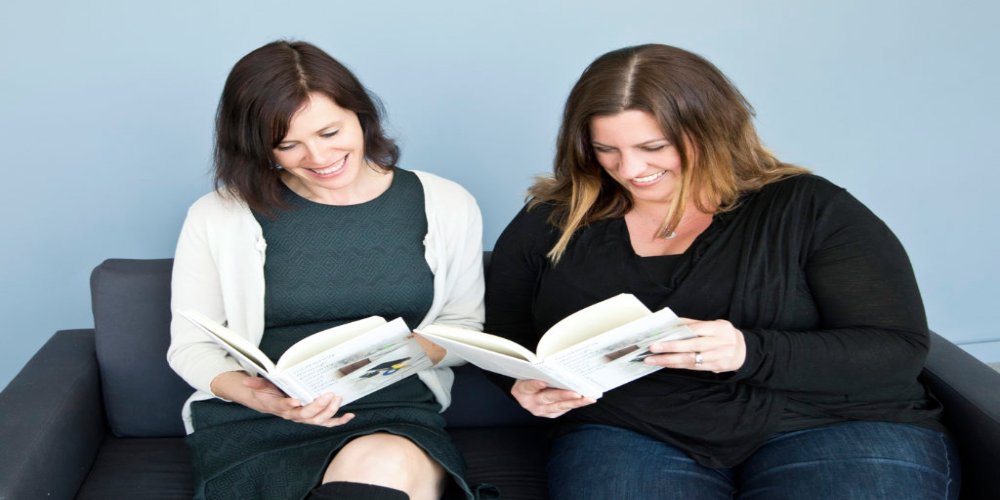The department offers two majors: Communication and Media and Theatre. Both majors combine core sequences with electives that will vary depending on student interests and goals. Students should discuss their elective preferences with a department faculty advisor before declaring one of these majors.
The department also offers five minors: Communication and Media, Dance and Movement Studies, Journalism and Documentary Storytelling, Filmmaking, and Theatre. Minors include core courses and electives. Students should discuss their intended combination of courses with the department chair before declaring one of these minors.
 Majors & Minors
Majors & MinorsExploring the complexities of communication through the study of Rhetoric, Mass Media, and Theatre
Innovative Article by Allegheny Alum Rachel Robertson Explores Sustainable Death Care Methods
Are you interested in the environment and sustainability? Consider learning about the growing trend of human composting and green burials! This article by Rachel Robertson ’17 explores the fascinating and innovative approach to death care that is more environmentally friendly than traditional methods. Human composting is a sustainable way to transform a body into soil, which is not only more eco-friendly, but also more affordable. Green burials offer similar benefits, avoiding the use of embalming chemicals, metal caskets, and concrete vaults. These alternative methods to traditional funeral care have gained popularity as people become more environmentally conscious. Dive deeper into the topic by reading Robertson’s informative article, and consider how human composting and green burials could impact the future of death care.
Allegheny alum Introduces Commitment to Access Program To Enhance Affordability for Pennsylvania Students and Families
Allegheny College today introduced a new Commitment to Access Program (CAP) that will cover 100 percent of tuition for Pennsylvania students from families earning an income of $50,000 or less. If you’re a student interested in studying communication, film, theatre, and/or dance within a rigorous liberal arts college, you should come visit!
Welcome to Allegheny, Uriel Gomez!
URIEL GÓMEZ (Costume Designer) is a Chicago based costume designer/stylist that has been working in the industry for over a decade. He graduated from Allegheny in 2012 and is excited to return for a one-year residency. He is a 3Arts Make A Wave Award Recipient; Jeff Nominated designer, an ALTA (The Alliance of Latinx Theatre Artists of Chicago) Award Recipient, and is an Artistic Associate with Teatro Vista. Recent productions include: Layalina (Goodman Theatre), Recipe for Disaster, Boys in the Band (Windy City Playhouse); I Am Not Your Perfect Mexican Daughter (Steppenwolf); Hundred Days, Head Over Heels (Kokandy Productions); The Madres (ALTA Award), The Wolf At The End Of The Block, Parachute Men (Teatro Vista); Small World, Punk! (The New Colony); De Troya, The River Bride (Halcyon Theatre); Mike Pence Sex Dream, Refrigerator, Dontrell Who Kissed the Sea (First Floor Theatre). For more information & designs please visit ugomez.com Instagram: @gomezandco
Welcome to Allegheny, Rachel Hoey!
Allegheny College is glad to announce that Rachel Hoey will join us this coming year as visiting assistant professor of theatre! Rachel Hoey holds a BA/MA in Theatre performance from San Diego State University, where she continued on as a lecturer, teaching Creative Drama and Theatre for Young Audiences. She earned her MFA in Directing from Indiana University (2020), where she had the opportunity to teach undergraduates in multiple sections of Acting I & Acting II as well as co-teach Great Performances in Film (an examination on the body of work of Emma Thompson and Viola Davis). Professor Hoey has also trained at Second City West Hollywood, Steppenwolf West, and British American Drama Academy. Professor Hoey has been a teaching artist and professional development leader for La Jolla Playhouse, San Diego Playwrights Project, Art for Learning SD, Childsplay Tempe, Scottsdale Arts, and Greater Boston Stage Company. In 2021-22, Professor Hoey collaborated on an inclusion and social justice grant at IU, served at Stages Bloomington as the Education Coordinator and Curriculum Specialist and taught Acting I, Acting II & Directing I as an adjunct professor. Most recently, Professor Hoey directed “The Lightning Thief: The Percy Jackson Musical” (Stages Bloomington). Welcome Professor Hoey!
Allegheny alum Itzel Ayala is recipient of the first Max Ferrá Director Fellowship from New York’s INTAR Theatre
INTAR Theatre announced that the award-winning off-Broadway theater company has presented its first Max Ferrá Director Fellowship to Itzel Ayala. The fellowship is in memory of INTAR’S founding Artistic Director and is intended to supply a major career boost and visibility for the recipient.
Letter From Chair
Welcome from the Vukovich Center for Communication Arts, which sits on land historically part of the Erie and Seneca nations, most recently the Haudenosaunee Confederacy.
It is my privilege to introduce you to the Department of Communication, Film, and Theatre. We are teachers, scholars, and artists committed to exploring the impact of communication across disciplines, cultures, and communities. You can learn about recent scholarly and artistic achievements as you look at individual faculty pages.
During their time in the department, students work through a core sequence of courses in their area of primary interest. Additionally, students take elective modules that allow them to pursue their more specific interests. Much like Allegheny values interdisciplinary learning across the undergraduate experience, we encourage students to draw connections within the department – between Film, Theatre, Media, and Public Communication. This core-module approach permits students to customize their major among dozens of possible combinations.
Students value Communication, Film, and Theatre courses because they focus on active learning, diverse perspectives, and critical questions about everyday life. In every classroom, students examine a wide range of disciplines and develop tools that apply to any career path. Outside the classroom, our students work with faculty on individual and joint projects that lead to campus and conference presentations, journal articles, books, performances, documentaries, and independent films. Of equal importance are internships; recent experiences include Food and Water Watch, the Erie SeaWolves, Philadelphia Eagles, New York Public Theatre’s Shakespeare in the Park, and INTAR.
One thing you will notice if you visit the Vukovich Center is that we are a noisy bunch. Learning and advising do not stop when a class or scheduled appointment ends. You will find faculty, students, and staff chatting in offices and classrooms, doorways and hallways, and in theatres and studios. I invite you to jump in.
Michael Mehler,
Professor and Chair
